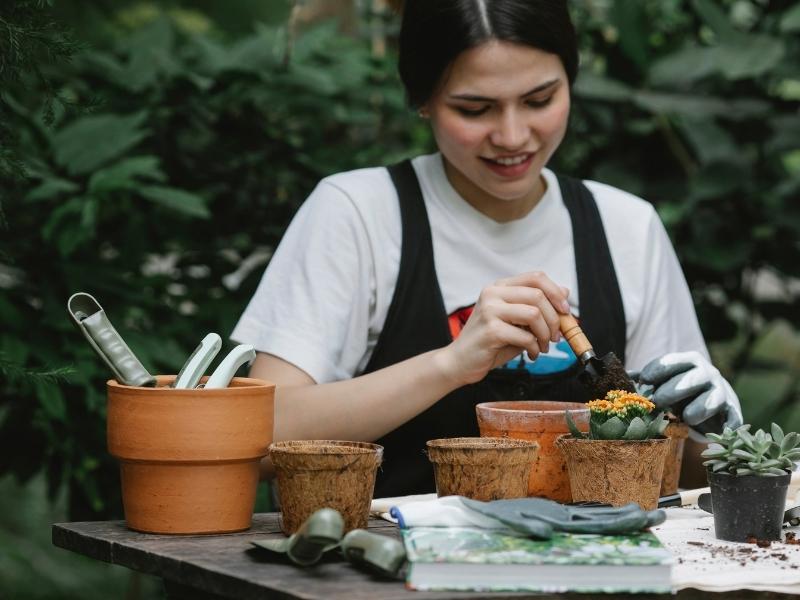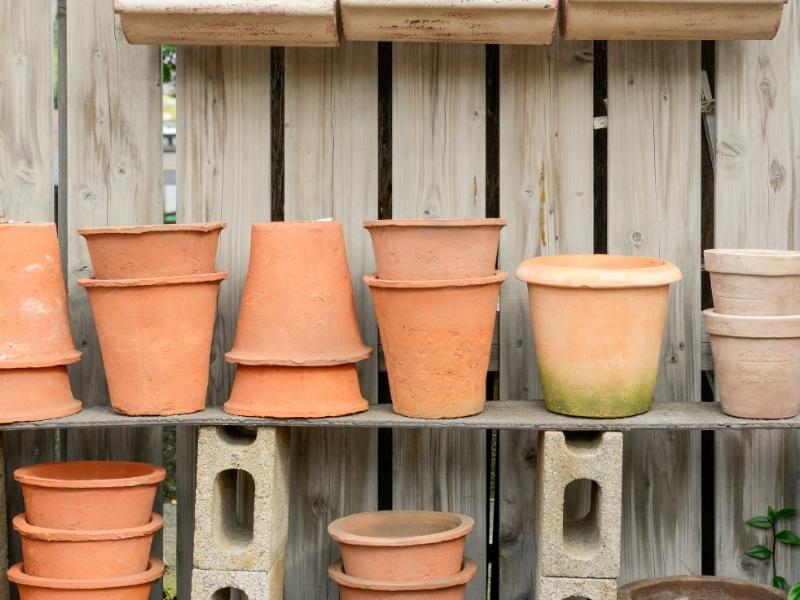Many online stores sell red worms, red wigglers, or compost worms. They work well for vermicomposting where they are kept confined to wood or plastic containers used to make organic compost from the kitchen and other scraps. Earthworms, also known as nightcrawlers, do a good job in garden soil where they are found naturally.
Even though earthworms can be beneficial to soil, when added to potted plants, they can damage the roots of plants. This is primarily because there’s not enough food for them to live and grow. Root damage becomes a real danger when the worm population increases. Otherwise, the worms may crawl out of the pots or die in the potting soil.
Is Earthworm harmful to plants?
There have been many studies of earthworms and their effects on soil and plants. Generally, researchers find that earthworm burrows aerate the soil and can improve water penetration.
Additionally, when earthworms are active in the soil, they tend to relieve compaction. They also help to make nutrients available for plants.
Their excrement (castings) combine organic matter and minerals, forming soil aggregates.
But, the folks at the University of New Hampshire’s Extension warn that adding earthworms to the soil in the garden can do more harm than good. While they can be a benefit in compost piles, cultivated garden soils, and even veggie beds, they are known to seriously damage natural ecosystems.
In a restricted environment like a planter, they can quickly modify the soil structure. This speeds up the leaching of nutrients and water. The worms also reduce organic matter and replace it with their castings.
At the same time, when soil earthworms are naturally present, they are generally not a problem. But the warning is that they should not be moved from one place to another.
As the Extension horticulturists point out, you can have healthy soil without earthworms. Apart from this, if your garden soil is good quality, the earthworms are likely to show up anyway.
Another issue to be aware of is that many larger, more aggressive, exotic worm species have been introduced into the U.S. Asian jumping worms are particularly damaging to our local ecosystems.
Earthworms vs. red wigglers
Earthworms and red wigglers are both described as red worms. But there are many different species, some wild and some domesticated – and bred for sale.
Earthworms are wild. Red wigglers are domesticated.
Both types are worms that produce castings that can benefit the soil. But both can negatively affect plant health.
Earthworms often referred to as nightcrawlers, burrow deep into the soil, as far down as 6 feet. Then at night, they crawl back up to the surface of the soil to find food.
Red wigglers are domesticated composting worms that don’t burrow deeply. Like earthworms, they eat decomposing matter near the surface of the soil, but they stay near the surface.
Earthworms won’t work as composting worms. They will die.
Should I put worms in my planter?
It’s not a good idea to put earthworms in your planter. Plants need nutrients, and there is no doubt that worm castings provide a great fertilizer.
But rather than putting the worms directly into your pots or into the potting soil that you use for planting, why not try some worm composting? Red wigglers are ideal for this, and you can mix their castings into your potting soil.
You can also make casting tea and spray that onto your potted plants.
Reasons to avoid putting earthworms in your planter
Common sense tells us it’s not sensible to put earthworms into our planters.
No space
Plants need space to grow and so do earthworms. There is never going to be enough space for the worms in the average pot.
Without sufficient space, the earthworms will either die or crawl out of the pots. And then where do they go?
Not enough food
Earthworms need lots of organic food to survive and thrive. They can find food above good quality soil in a garden environment, but they’re going to run out of food if you force them into a planter.
They damage root systems
In their natural soil environment, earthworms burrow deep into the soil. In a pot, this habit can damage the root system of plants, especially seedlings and young plants.
Chemical fertilizers will kill them
While you may not intend to use commercial fertilizer to enrich the soil in your planters, if you do, it’s likely to kill your soil earthworms.
How do you kill earthworms in a potted plant?
If you want to get rid of earthworms that are in your potted plants, the best way is to remove them manually, by hand.
If you spray the soil with a biological insecticide, they will die. But people more commonly use this method to get rid of nematodes, cutworms, and other pests.
How to prevent earthworms in a potted plant?
The only way that earthworms will get into a potted plant is if the container is buried in the soil in your garden. They are not naturally attracted to pot plants.
That said, when you add earthworm castings to garden soil, the eggs from the castings do sometimes hatch.
The other thing is that the potting soil in your containers may not be suitable for earthworms. They are attracted to moist, slightly acidic soil with a pH of between 6.6 and 6.8.
They like soil that has a loamy texture and is cool. Above all else, they need lots of organic food to stay alive.
In “worm farms” where people keep them in containers to make compost, they thrive on vegetable waste and other organic matter. This isn’t what you want to be adding to your potted plants.
Conclusion
Ultimately, it’s not okay to put earthworms into potted plants. In a nutshell, there’s not enough space for earthworms in pots and they won’t get enough food to survive.
When the worms discover that there isn’t enough food, they’re likely to start feeding on the roots of the potted plants.
Rather start your own mini earthworm farm making organic compost.
Related Articles:



